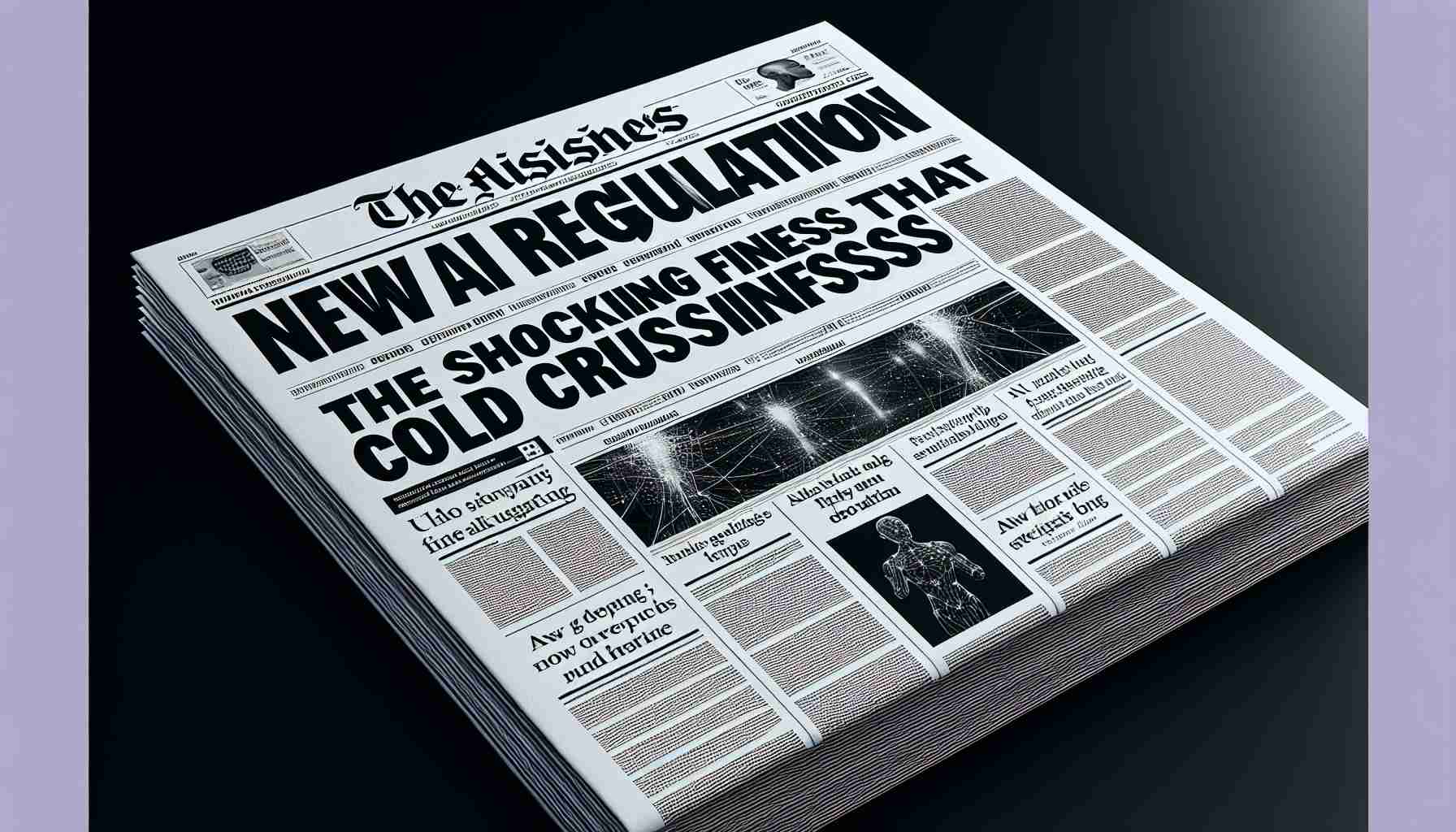The recently implemented regulations on artificial intelligence impose staggering penalties of up to 35 million euros or seven percent of annual revenue for non-compliance. Industries like human resources and education are particularly vulnerable, with strictures banning certain AI applications outright.
High-Stakes AI Deployment
Although the regulations have come into effect, they will be enforced gradually. Businesses are urged to assess the cost-benefit of adopting AI in regulated sectors. Systems deemed unacceptably risky face outright bans, while highly risky uses will be subjected to stringent legal scrutiny. Even less risky systems must meet specific requirements.
Prohibited AI Uses
The regulation bans AI applications involving subliminal techniques, social credit systems, and extensive biometric databases. Notably, AI capable of deducing emotions in workplaces or educational settings is also prohibited. This restriction has implications for AI functionalities, such as Chat GPT’s emotion-responsive features, which are unavailable in Europe.
Severe Penalties and Obligations
Utilization of AI for banned purposes could incur fines of up to 35 million euros or a hefty percentage of annual turnover. Additionally, other infringements can lead to penalties of up to 15 million euros or three percent of revenue. In HR, AI used for candidate evaluation or employee performance assessments is deemed highly risky. This necessitates rigorous controls, including risk management protocols, human oversight, and documentation of AI decisions.
Complexity of AI Regulation
Establishing clear guidelines for AI tool usage among employees is crucial to prevent potential data breaches or operational errors. Without defined policies, employers may struggle to hold employees accountable for AI-induced issues. The complexity of these regulations mirrors typical European directives and will unfold over the next couple of years. Understanding AI’s unique attributes compared to traditional algorithms is vital for compliance.
Surviving and Thriving Under New AI Regulations: Tips, Hacks, and Insights
With the introduction of strict regulations on artificial intelligence, businesses in pivotal sectors like human resources and education face significant challenges. To navigate and comply with these rules effectively, companies need strategic insights and proactive measures. Here, we share some valuable tips, life hacks, and interesting facts to help you manage AI deployment without straying afoul of these new legal standards.
1. Conduct a Comprehensive AI Audit
Before implementing any AI solution, conduct a thorough audit of existing systems. This involves evaluating the data sources, AI algorithms, and potential impacts on people. Make sure to pinpoint any systems that could fall under the prohibited uses according to the new regulations. By identifying risky areas early, you can make informed decisions about whether to modify, replace, or eliminate specific AI processes.
2. Invest in AI Compliance Training
One of the most effective ways to ensure adherence to AI regulations is to invest in training for your staff. Regular workshops and seminars can keep your team updated on the latest compliance requirements and ethical AI practices. This not only reduces the risk of non-compliance but also empowers your team to use AI responsibly.
3. Embrace Human Oversight
AI without human oversight can lead to significant risks, particularly in sectors like HR where decisions can heavily impact individuals’ lives. Implement human-in-the-loop systems where AI-driven recommendations are reviewed and approved by trained personnel. This not only conforms with regulatory requirements but also fosters trust and transparency.
4. Develop a Risk Management Framework
Setting up a comprehensive risk management protocol for AI is crucial. This framework should encompass risk assessment methodologies, protocols for managing identified risks, and procedures for continuous monitoring. Such systems help mitigate potential negative impacts on your business operations and reputation.
5. Stay Updated with AI Policy News
The AI regulatory landscape is dynamic and can change rapidly. Ensure that you stay informed about policy updates and new guidelines by following reputable sources and industry news. This proactive approach helps you adapt quickly and maintain compliance. For example, platforms like EURACTIV regularly publish updates on European regulations and policy.
Interesting Fact: Europe’s Stance on AI Emotion Detection
Did you know that Europe’s ban on AI emotion detection technologies is driven by concerns over privacy and discrimination? This contrasts sharply with some countries where these technologies are considered an asset, particularly in customer service sectors. Europe’s cautious approach aims to prioritize ethical considerations over technological advancement in sensitive environments.
Life Hack: Leverage External Compliance Experts
If navigating the complex web of AI regulations feels overwhelming, consider hiring external compliance experts. These professionals can provide valuable guidance in aligning your AI strategies with current laws. Additionally, they offer insights that could transform potential compliance challenges into opportunities for innovation and differentiation.
These practical tips, insights, and hacks not only enhance your compliance efforts but also leverage AI’s potential responsibly. By embedding these strategies into your operations, you ensure your business remains competitive and ethically aligned amidst the fast-evolving AI landscape.








